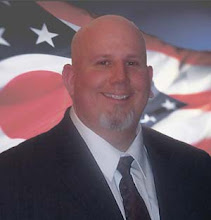The Federal Communication Commission’s decision to arbitrarily begin implementing Net Neutrality likely will be next piece of iron-clad evidence for this truism: the legal profession is truly recession-proof.
During a stretch of time when most vocations, professions, and other lines of work are taking a beating, all the activity emanating out of Washington, D.C., these last 20-or-so months is helping lawyers across America stay both busy and rolling in the dough. Net Neutrality will once again serve as a cog in America’s big legal machine.
The subject of so-called Net Neutrality has been ongoing for almost a year-and-a-half. A growing number of Progressives in this country have begun arguing that the Internet should be classified as a public utility and consequently placed under federal regulatory control. It already has been first a major point of contention in Congress as well as shot down by a federal appeals court.
Depending on to which talking head you listen, there are several key concerns lawmakers and federal regulators allegedly have in terms of recent practices by Internet Service Providers.
One of them is so-called tiered access for servers and routers – commonly described as “leverage price discrimination.” The primary alarm over this centers on the supposed potential for ISPs to make the price of bandwidth access too cost prohibitive for various online operations. In essence, this is an allegation that ISPs will begin creating cyber-haves and have-nots.
Another talking point that has come-up is a practice among ISPs where they allegedly are adjusting bandwidth access at-will with their customers. Proponents of this practice insist it is a technical necessity – certain online activities demand greater amounts of bandwidth than others.
One example that has been mentioned is a user (meaning your or me) who is downloading or watching a streaming movie needs more bandwidth in order to have optimum Internet service than some who is reading a blog.
What Net Neutrality proponents are omitting from the discussion (deliberately or otherwise) is the fact there is a multitude of ISPs from which we all can choose. For example, here in West Central Ohio if I’m unhappy with pricing or bandwidth management by Time Warner, I can switch to CenturyLink. If they tick-me-off, I am free to pursue the services of AT&T. If I don’t like how they’re managing the candy store, Verizon and Sprint would be more than happy to compete for my money. Depending on one’s area, the list goes-on from there.
As it stands right now, should any one or two (or even three) major players in the industry attempt the kind of high jinks over which alarmists on the Left are raising their furor, Internet customers will rebel. People will drop ISPs that push their luck on these matters and give their competition the larger market share they deserve.
Also, if there is one thing society at large has been able to deduce from watching government get bigger and bigger it is the fact private entities (and even a few non-profits) can conduct business far more efficiently than any part of the public sector.
At this point, there comes along the burning question: why is it so imperative for the federal government to exert authority over the Internet?
While many conspiracy theories abound and clearly Net Neutrality is a piece that fits multiple puzzles, the one thing I have yet to hear or read anyone mention is the first point I thought of when I heard the news of the vote among the FCC’s heads: it is the first step toward ensuring tax collections for online commerce.
As the Obama Administration continues to advocate for the Value Added Tax, the ability to regulate the Internet would be a major boon for Washington and its appetite for taxpayer money. Having witnessed the hit-or-miss nature of sales tax collections by the states on Internet purchases over the last 20 years, the legal precedent the FCC is looking to purloin for the rest of the federal government undoubtedly will wedge the door open for the Internal Revenue Service.
The only uncertainty on this thread is who will be the third agency or department to benefit? Off the top of my head, the likely candidates would be the Justice Department, Department of Commerce, Health and Human Services, and Homeland Security.
Having had to stomach a compromise with House Republicans on extending the present federal tax rates and keeping the estate tax threshold at its present $5 million mark, I have no doubt the White House is in part laying the foundation for circumventing the will of the people once again.
Except on this order of business, the cost to us all will reach well beyond the extra pound of flesh extracted by our friendly neighborhood taxman.
I can’t help but wonder how many Telecom CEOs have the necessary lawyers on their speed dial. At the rate of activity we’ve seen during the lame duck session, job openings for legal aids may be the one field that outpaces medical in 2011.
Tuesday, December 21, 2010
Subscribe to:
Post Comments (Atom)

No comments:
Post a Comment